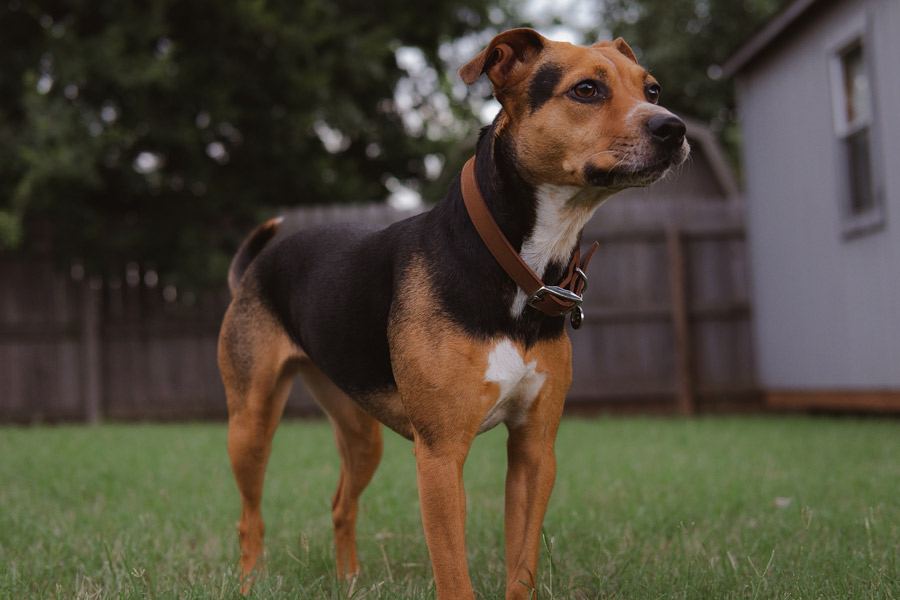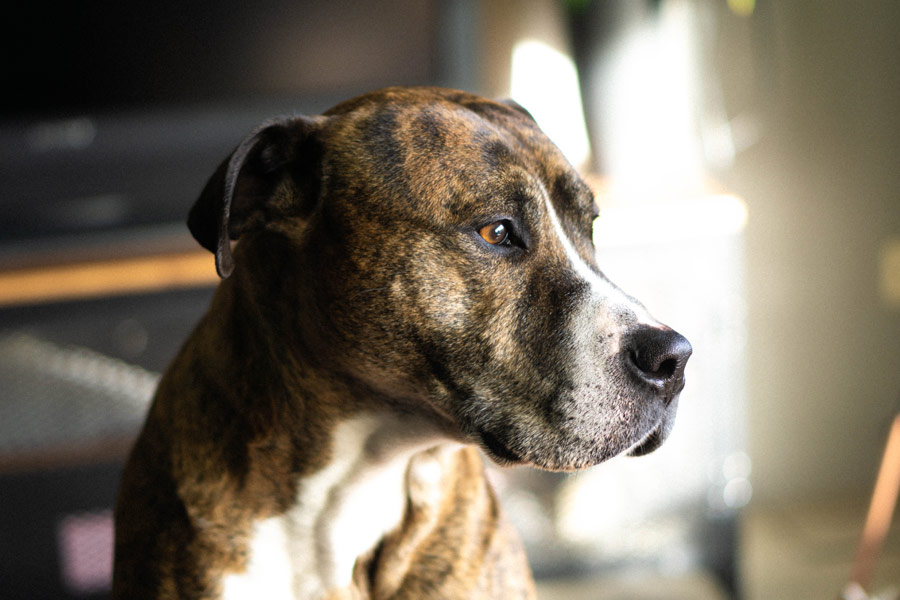Certainly, pets can contract coronavirus but the canine version of the virus is different to the current human outbreak.
In fact, canine coronavirus was originally discovered in 1971 and is known to cause mild gastro-related symptoms in dogs. What’s more, in recent years other strains of the virus have been identified including canine respiratory coronavirus and enteric coronavirus.
However, in spite of the fact the novel coronavirus has been declared a global health emergency by the World Health Organisation, it’s not believed to be a threat to our pets.

Image source: Kevin Keith on Unsplash
Causing concern: greyhounds in Queensland
Recently, a number of greyhounds in Queensland have been identified as having canine enteric coronavirus. Veterinarians from the Queensland Racing Integrity Commission (QRIC) carried out tests on several greyhounds with gastroenteritis symptoms.
The results confirm all the dogs involved are infected with canine enteric coronavirus. Importantly though, the QRIC advises in its media release, ‘Gastroenteritis caused by canine coronavirus is in no way related to the current ‘novel coronavirus’ outbreak causing respiratory illness in people.’
Ross Barnett, QRIC commissioner, says, “Greyhounds are presenting with mild, transient (2-3 days) lethargy, vomiting, diarrhoea, associated dehydration and a fever may or may not be present.
“Canine coronavirus is a common cause of diarrhoea and vomiting and is highly contagious between dogs. Unlike with parvovirus, the mortality rate is low with canine coronavirus. Puppies are the most susceptible to this disease.
“There is no specific treatment for canine coronavirus, however supportive care is very important and greyhound racing participants should seek immediate veterinary advice for affected dogs.”
Contracting coronavirus
Canine coronavirus is transmitted through contact with infected faeces. Dogs can also contract the disease by eating from a contaminated food bowl or through direct contact with an infected dog.
The most common symptoms are diarrhoea, lethargy and decreased appetite. According to Merck Animal Health, the clinical symptoms are:
- Depression
- Loss of appetite
- Vomiting
- Acute diarrhoea
- Yellow-orange diarrhoea (blood may also be present)
- Fever (occasional)
Dogs most at risk include:
- Puppies
- Dogs that reside with a large number of other dogs, such as those in kennels and rescue centres etc
- Dogs that board at a kennel or attend doggie daycare
- Those that regularly visit groomers, dog parks or frequently come into contact with other dogs
- Canines that live in multiple pet homes
Image source: Mateusz Grabowski on Unsplash
Treatment and prevention
While no specific treatment for canine coronavirus exists, a combination vaccine (protech C2i) is available that may assist in preventing the disease. However, it won’t stop infection.
As such, stringent hygiene practices should be recommended and adhered to, particularly in kennels. The QRIC suggests the following actions.
- Wash hands frequently
- Isolate sick dogs
- Wear gloves and protective clothes
- Keep areas clean and disinfected
- Keep watch on the health of dogs in your care
- Consider quarantining new arrivals
- Any dogs that are vomiting, have diarrhoea, showing signs of lethargy or have a high temperature should be isolated
QRIC Animal Welfare and Veterinary Services Director Dr Martin Lenz says, “It is important that all those in contact with this virus know there is the potential for the virus to be transmitted on clothing and equipment and they should take precautions when handling both healthy and sick dogs within the kennel.”
While this advice is aimed primarily at greyhound racers and trainers, it can be useful for anyone working in the pet industry. It’s particularly relevant to boarding or training kennels, rescue facilities and dog shelters as the risk for infection is highest when many dogs are housed together.
Information sources:
- Queensland Racing Integrity Commission (QRIC)
- VCA Hospitals, Coronavirus disease in dogs
- Canine coronavirus, Science Direct
Latest posts by Liz Walden (see all)
- Pet health: Medicinal cannabis for pets - December 27, 2021
- What pet business insurance do I need? - November 17, 2021
- Pet sitters: how to take time off - November 15, 2021











Leave A Comment